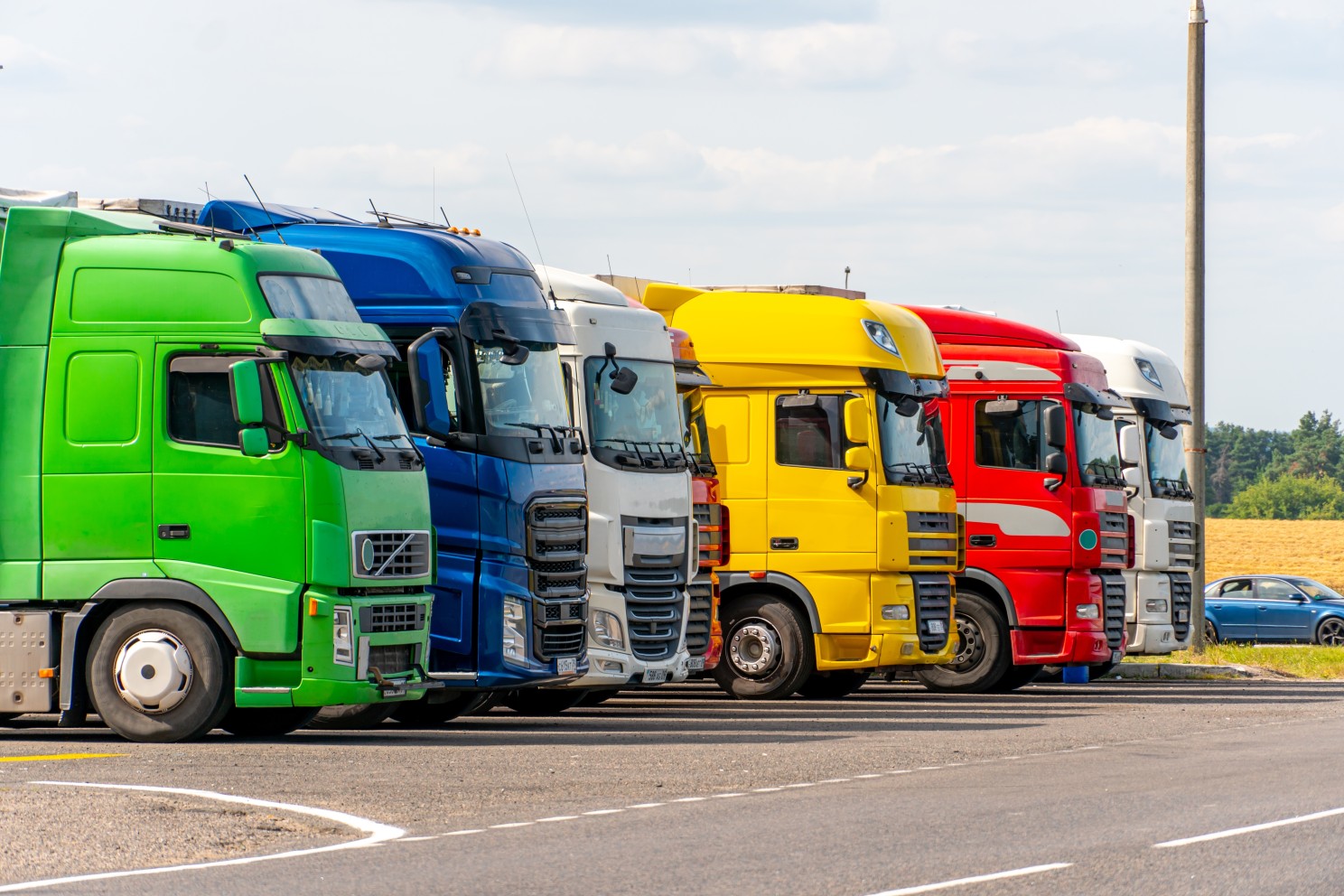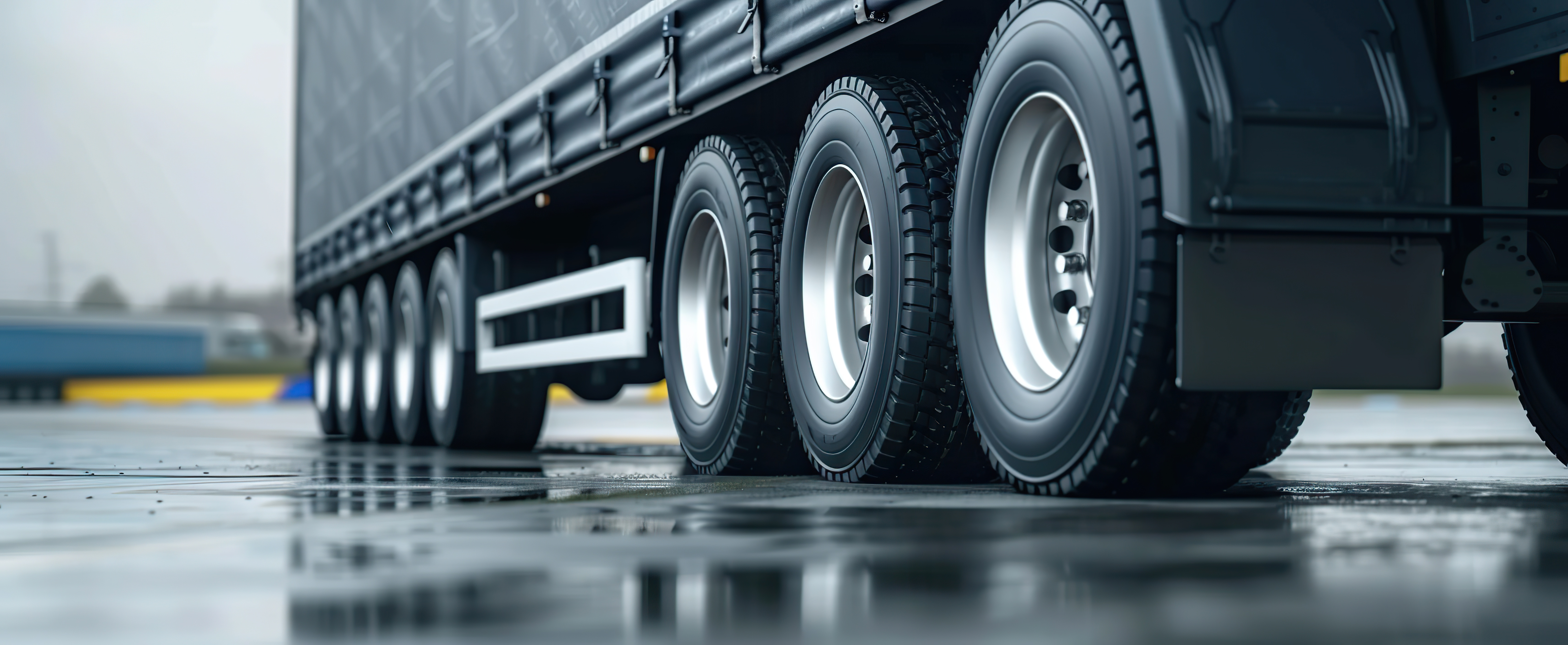
Josh Cousens
Wat wagenparkbeheerders moeten weten over de EU-transportregelgeving
Gemaakt: 07-04-2025
•
Bijgewerkt: 07-04-2025
We weten dat wagenparkbeheerders moeten jongleren met chauffeurstekorten, stijgende brandstofkosten en de aanzienlijke taak om vrachtwagens aan de regels te houden. Voeg daar nog een complex web van EU-transportregelgeving aan toe dat sneller evolueert dan het aantal kilometers van uw vloot. Klinkt dit bekend?
Welkom in de frontlinie van het Europese transport.
Van regels voor bedrijfsuren tot emissiedoelstellingen, het regelgevingslandschap van de EU is een uitdaging, maar ook een routekaart voor innovatiever, veiliger en duurzamer transport.
Of u nu een familiebedrijf runt in Polen of pan-Europese activiteiten overziet vanuit het Verenigd Koninkrijk, de regels vóór blijven is geen optie. Het is overleven.
Waarom wagenparkbeheerders moeten opletten
De EU-vervoersregelgeving is van invloed op bijna elk aspect van uw bedrijf: rijtijden, voertuigemissies, grenscontroles, parkeren en digitale compliance. Achterstand kan boetes, vertragingen of verlies van contracten betekenen.
Het goede nieuws is dat als je het systeem begrijpt, je het in je voordeel kunt gebruiken. Als je de regels kent, is het gemakkelijker om je bedrijf te onderscheiden van de concurrentie.

Belangrijkste EU transportregels die elke wagenparkbeheerder moet weten
1. Chauffeursuren en tachograafwetten
De Europese Unie heeft strenge regels over hoe lang chauffeurs op de weg mogen werken. Wagenparkbeheerders moeten ervoor zorgen dat hun chauffeurs:
- Rijd niet meer dan 9 uur per dag (tweemaal per week uit te breiden tot 10 uur)
- Rijd niet meer dan 56 uur per week
- Neem een pauze van 45 minuten na 4,5 uur rijden.
Digitale tachografen moeten op alle relevante voertuigen worden geïnstalleerd om de naleving te controleren. Als dat niet gebeurt, is dat een van de meest voorkomende redenen voor boetes.
Lees hier meer over tachograafregels.
2. Mobiliteitspakket
Deze ingrijpende hervormingen veranderen het grensoverschrijdende vervoer. De belangrijkste veranderingen zijn:
- Regelmatige terugkeer van voertuigen naar hun thuisland om de 8 weken
- Gelijke beloning voor chauffeurs die in EU-gastlanden werken
- Nieuwe regels voor cabotage en detachering van chauffeurs.
Het is een game-changer voor wagenparkbeheerders die toezicht houden op internationaal transport.
Ontdek hier meer over het mobiliteitspakket.
3. Emissies en milieuregels
Lage-emissiezones (LEZs), CO2-doelstellingen voor nieuwe vrachtwagens en stimulansen voor elektrische voertuigen zijn nog maar het begin.
Wagenparkbeheerders moeten zich houden aan de Euro 7-emissienormen. Deze omvatten:
- Weet waar zich lage-emissiezones bevinden (vooral in steden als Parijs, Berlijn en Milaan).
- Investeer in schonere technologie of pas oudere voertuigen aan
- Houd emissiegegevens bij voor rapportageverplichtingen.
4. Slimme tachografen & digitale naleving
De Europese Unie streeft naar geautomatiseerde handhaving:
- Smart tachografen zijn verplicht in alle nieuwe voertuigen
- Deze apparaten verzenden GPS-gegevens en kunnen op afstand worden gescand door autoriteiten.
- Digitale tools voor wagenparkbeheer zijn niet langer een luxe - ze zijn uw wettelijke vangnet.
5. Regels voor grensoverschrijdend parkeren en rusten
Wagenparkbeheerders moeten parkeer- en rustplaatsen plannen in overeenstemming met de regels voor het welzijn van chauffeurs:
- Chauffeurs moeten wekelijks rustperiodes buiten de cabine doorbrengen
- Veilig parkeren van vrachtwagens wordt in sommige regio's verplicht.

Veelgestelde vragen
Wat zijn de EU-regels voor rijtijden voor vrachtwagenchauffeurs?
Wagenparkbeheerders moeten ervoor zorgen dat chauffeurs zich houden aan de door de EU voorgeschreven limieten: 9 uur per dag (met flexibiliteit), gepaste pauzes en maximale wekelijkse/maandelijkse rijtijden.
Wat is het EU-mobiliteitspakket voor vrachtwagens?
De hervorming van het mobiliteitspakket zorgt voor eerlijke concurrentie, welzijn voor chauffeurs en goed toezicht in het internationale transport en wegvervoer - met strengere regels voor cabotage, loon en retourzendingen.
Wat gebeurt er als u de regels van de tachograaf overtreedt?
Chauffeurs die de regels van de tachograaf overtreden, kunnen boetes, mogelijke verboden en een beschadigde reputatie van het bedrijf verwachten. Niet-naleving is niet alleen een risico - het is ook duur.
Hebben EU-landen emissienormen voor vrachtwagens nodig?
Ja. De meeste grote Europese landen en steden hebben een strikt beleid en emissiedoelstellingen om de luchtvervuiling door voertuigen te verminderen, dus wagenparkbeheerders moeten vooruit plannen.
Het grote plaatje
Wagenparkbeheerders beheren niet alleen vrachtwagens, maar ook risico's, naleving en de reputatie van hun bedrijf. Inzicht in de EU-transportregelgeving is het verschil tussen floreren in het moderne transport en achterop raken.
SNAP maakt die taak beter beheersbaar. Van digitale betalingen tot vrachtwagenparkeer- en nalevingsoplossingen, wij ondersteunen de mensen die Europa in beweging houden.
De regelgeving wordt strenger, maar competente wagenparkbeheerders? Zij scherpen hun spel ook aan.
Klaar om compliant te worden, concurrerend te blijven en de toekomst van het vrachtvervoer te sturen? Ontgrendel SNAP vandaag.


